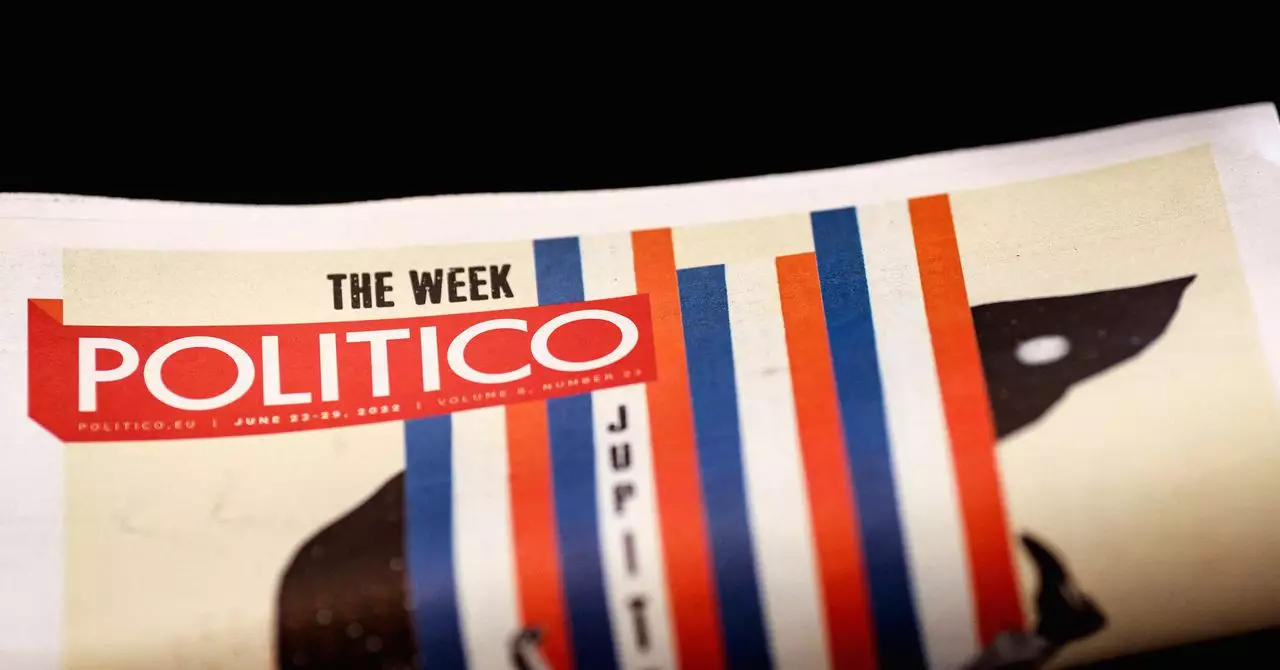As artificial intelligence (AI) continues to infiltrate various industries, the realm of journalism finds itself at a crucial crossroads. Politico, a prominent news outlet, has become a frontline player in the battle for journalistic integrity amid the rise of AI technology. The PEN Guild, representing Politico’s workforce, is initiating a controversial legal dispute regarding the alleged breach of contract concerning AI implementation. This dispute has the potential to redefine the power dynamics within newsrooms, laying the groundwork for how journalists interact with and oversee AI systems that play an integral role in content production.
Historically, unions have advocated for workers’ rights and protections, and as AI technologies evolve, these organizations must adapt to ensure that media professionals are not sidelined. The PEN Guild’s bold stance reflects an urgent need for accountability in AI usage, ensuring that the ethical standards governing journalism apply equally to both human and machine-generated content. The outcome of this legal battle could serve as a beacon for news organizations nationwide, contending for a future where journalists retain agency in AI governance.
AI in Action: Politico’s Experimentation
Last year marked a significant shift for Politico, as the news outlet explored the use of AI to enhance its reporting capacity. The launch of AI-generated live news summaries during key political events was acknowledged as an innovative approach, tailored to meet the demands of an increasingly data-driven audience. Furthermore, the introduction of the Policy Intelligence Assistance tool—created through a collaboration with Y Combinator-backed Capitol AI—signifies a concerted effort to integrate AI solutions into journalistic practices.
Despite the potential advantages these AI-driven tools offer, they also raise troubling questions about the editorial integrity of the organization. With the PEN Guild alleging that the company implemented AI-driven solutions without adequate discussion or consent, concerns about the erosion of journalistic standards are now at the forefront. This unfolding scenario exemplifies the struggle of reconciling technological advancement with the foundational principles of responsible and accurate reporting.
The Fine Line Between Innovation and Integrity
Amidst this tumultuous landscape, a critical tension exists: innovation must not come at the cost of integrity. The provisions outlined in the union’s contract assert that timely notice is essential to protect workers from sudden technological shifts that could impact their job functions. The PEN Guild’s grievances suggest a broader context in which journalists fear losing their voices in an industry increasingly reliant on algorithm-generated content. Union president Jon Schleuss underscores the gravity of this issue, framing it as a critical juncture in determining the extent to which journalists should influence AI’s integration into their work.
The ethical implications of AI-generated content cannot be overstated. Reports indicate instances where AI outputs contained inaccuracies or employed questionable language, such as referring to individuals as “criminal migrants,” which would contravene established journalistic guidelines. This approach not only undermines public trust but reflects a concerning disconnect between AI technologies and the human values that journalism stands for. The future of AI in newsrooms should prioritize quality content and accountability rather than mere efficiency.
The Road Ahead: A Call for a New Standard
As the impending arbitration draws near, it is paramount for journalists, unions, and management to engage in meaningful dialogue about AI’s role in the newsroom. The fundamental question remains: how can organizations harness the potential of AI while maintaining the core tenets of journalistic ethics? Moving forward, there is an undeniable need for frameworks that govern AI usage in media, particularly as the absence of federal regulations creates a precarious situation for professionals seeking to ensure quality journalism in the age of technology.
Unions like the PEN Guild serve as crucial advocates for transparency and ethical practices, pushing back against the rapid adoption of AI without due consideration of its ramifications. As media organizations continue to grapple with the implications of AI in their operations, a collaborative effort to establish clear standards will be indispensable in reconciling the need for innovation with the integrity of journalism. Journalistic professionalism must remain intact, ensuring that no machine can replace the nuanced understanding and ethical compass that human journalists bring to their vital work.

